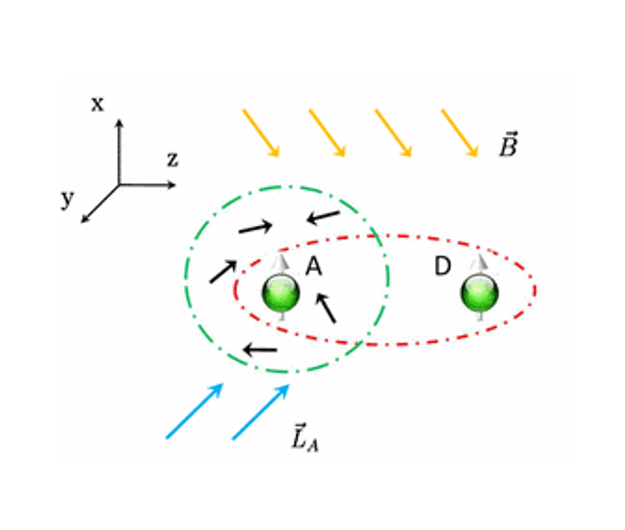Quantum Probe and Design for a Chemical Compass with Magnetic Nanostructures
Jianming Cai, Phys. Rev. Lett. 106, 100501(2011)
Magnetic fields as weak as Earth’s may affect the outcome of certain photochemical reactions that go through a radical pair intermediate. When the reaction environment is anisotropic, this phenomenon can form the basis of a chemical compass and has been proposed as a mechanism for animal magnetoreception. Here, we demonstrate how to optimize the design of a chemical compass with a much better directional sensitivity simply by a gradient field, e.g., from a magnetic nanostructure. We propose an experimental test of these predictions, and suggest design principles for a hybrid metallic-organic chemical compass. In addition to the practical interest in designing a biomimetic weak magnetic field sensor, our result shows that gradient fields can serve as powerful tools to probe spin correlations in radical pair reactions.
